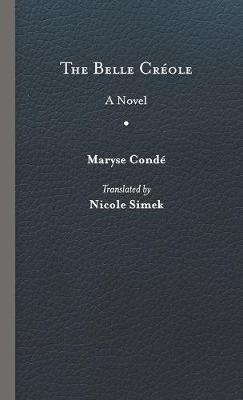CARAF Books: Caribbean and African Literature translated from the French
2 total works
Offered here for the first time in English is "I, Tituba, Black Witch of Salem," by the Guadeloupean writer Maryse Conde. This novel, winner of the 1986 Grand Prix Litteraire de la Femme, expands on the true story of the West Indian slave Tituba, who was accused of witchcraft in Salem, Massachusetts, arrested in 1962, and forgotton in jail until the general amnesty for witches two years later. Maryse Conde brings Tituba out of historical silence and creates for her a fictional child hood, adolescence, and old age. She turns her into what she calls "a sort of female hero, an epic heroine, like the legendary "Nanny of the maroons," who, schooled in the sorcery and magical ritual of obeah, is arrested for healing members of the family that owns her. Rich in postmodern irony, the novel even includes a encounter with Hester Prynne of Hawthorne's "Scarlet Letter." Conde breaks new ground in both style and content, transcending cultural and epochal boundaries, not only exposing the hypocrisy of Puritan New England, but challanging us to look at racism and religious bigotry in contemporary America.
This readable novel celebrates Tituba'a unique voice, exploring issues of identity and the implications of "otherness" in Western in Western literary traditions. Its multiple layers should delight a wide variety of readers.
This readable novel celebrates Tituba'a unique voice, exploring issues of identity and the implications of "otherness" in Western in Western literary traditions. Its multiple layers should delight a wide variety of readers.
Possessing one of the most vital voices in international letters, Maryse Condé added to an already acclaimed career the New Academy Prize in Literature in 2018. The fourteenth novel by this celebrated author revolves around an enigmatic crime and the young man at its center. Dieudonné Sabrina, a gardener, aged twenty-two and black, is accused of murdering his employer--and lover--Loraine, a wealthy white woman descended from plantation owners. His only refuge is a sailboat, La Belle Créole, a relic of times gone by. Condé follows Dieudonné's desperate wanderings through the city of Port-Mahault the night of his acquittal, the narrative unfolding through a series of multivoiced flashbacks set against a forbidding backdrop of social disintegration and tumultuous labor strikes in turn-of-the-twenty-first-century Guadeloupe. Twenty-four hours later, Dieudonné's fate becomes suggestively intertwined with that of the French island itself, though the future of both remains uncertain in the end.
Echoes of Faulkner and Lawrence, and even Shakespeare's Othello, resonate in this tale, yet the drama's uniquely modern dynamics set it apart from any model in its exploration of love and hate, politics and stereotype, and the attempt to find connections with others across barriers. Through her vividly and intimately drawn characters, Condé paints a rich portrait of a contemporary society grappling with the heritage of slavery, racism, and colonization.

